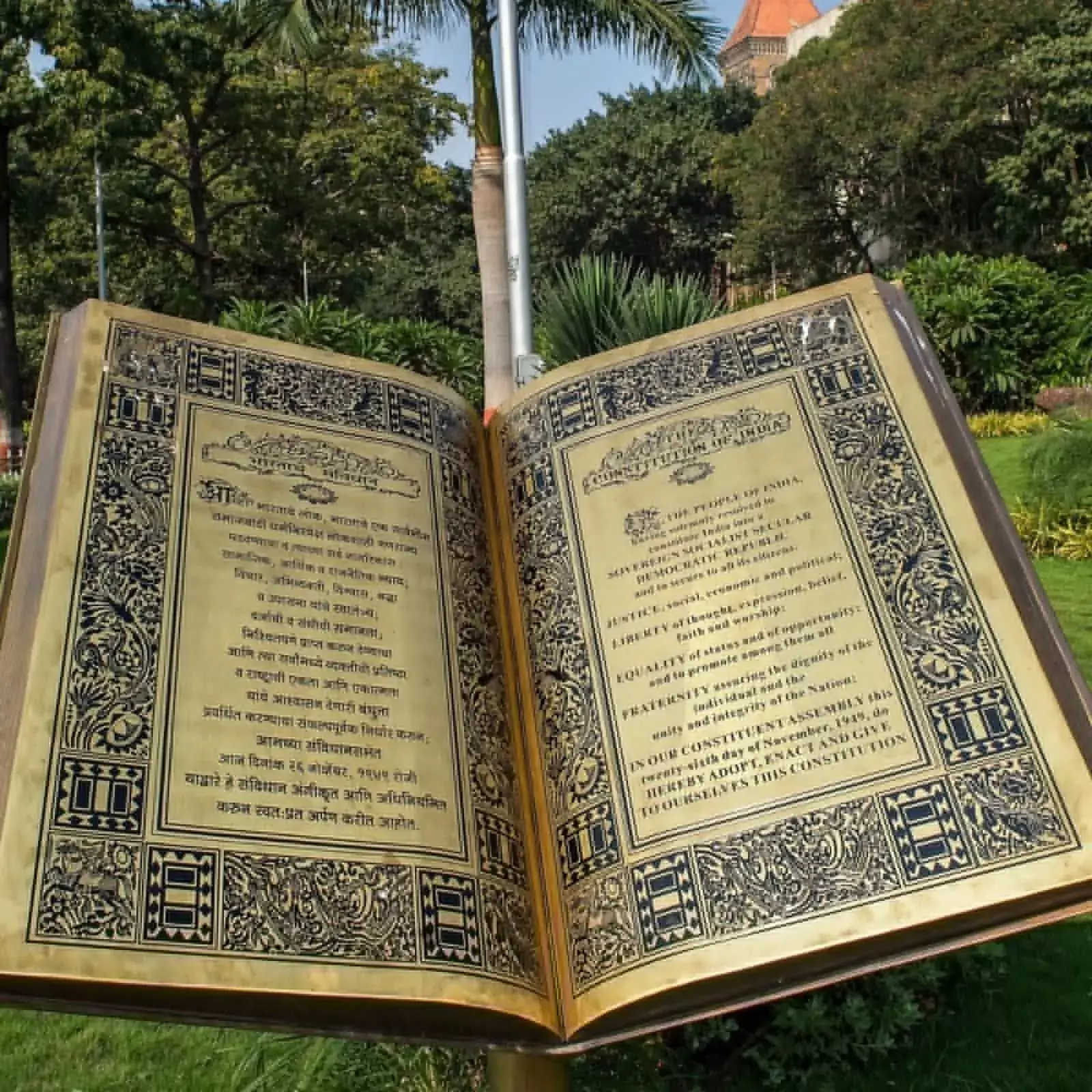We The People
Constitution Day celebrated on November 26 reminds us to save it from the assault by powers that be
From 2016 onwards Constitution Day has been observed on November 26. It was on November 26 1949, that the Constituent Assembly adopted, enacted and gave to the people of India the Constitution.
Our Constitution not only provided us a legal framework and fundamental law for governance, but also a blueprint for social and economic development of our nation. India had been devastated by exploitation and underdevelopment because of centuries of colonial rule, and many forms of indigenous inequities such as the caste system.
Dr. B R Ambedkar had described it as an "ascending order of reverence and descending order of contempt". He also said in his last speech in the Constituent Assembly that castes are anti-national.
In addition, the deprivation and exclusion suffered by women because of patriarchy and other factors constitute one of the internal inequities plaguing society. The persistence of subhuman treatment meted out to a sections of society on the grounds of their 'low caste' status in face of the constitutional safeguards for them reminds Ambedkar's ringing words in favour of what he called "reclamation of human personality" to defend the architecture of rights centered around individual and guaranteed by the Constitution.
These internal sources of inequity continued to be endured from ancient times, and the Constitution made an audacious attempt to remedy them. It also celebrates fraternity as enshrined in the Preamble, assures, among others, the dignity of the individual.
While several countries of Asia and Africa including some of our neighbouring countries could not sustain their Constitutions, India remained an exception. Till today our polity and society to a great extent stand distinguished in the whole world for upholding the Constitution.
Our unity and integrity has been sustained and nourished because of the Constitution. The President of India and Governors of all States of the Union take oath to preserve, protect and defend the Constitution.
In contrast the Prime Minister of India, Chief Ministers of States and all Ministers, be they of the Union or States, take oath owing allegiance to the Constitution. People's representatives like MLAs and MPs swear by the Constitution at the time of taking oath.
When Atal Bihari Vajpayee Government decided to review the Constitution many expressed their apprehension that an attempt was being made to subvert it. None other than President of India K R Narayanan questioned that decision of the Vajpayee Government and said "let us examine if the Constitution has failed us, or if we have failed the Constitution."
Those words made the Government announce that a Commission would be appointed to review the working of the constitution instead of a direct revision. That was how the Constitution was saved by President Narayanan who was oath bound to "preserve, protect and defend the Constitution."
Now people are in the forefront to save the Constitution. During country wide movements against Citizenship Amendment Act (CAA) and National Register of Citizens (NRC) millions of people read the Preamble of the Constitution to uphold the values of liberty, equality and fraternity and fight against discriminatory laws. All these speak volumes for the relevance of the Constitution as the binding glue of our nation.
We have stayed together as a nation because of the Constitution and Parliamentary democracy. The rest of the world marvels at our Constitution as a legal framework which affirms equality for all irrespective of faith pursued and language spoken by individual citizens.
It captures in its scope our complex but delightful diversities and provides us the secular framework for governing the country. It celebrates as much the law and jurisprudence as the values of our ancient civilisation shaped by plurality and diversity.
No wonder that an American expert on the Indian Constitution, Professor Granville Austin described our Constitution as the cornerstone of our nation. While Prime Minister Modi after winning the May 2014 general elections hailed our Constitution and owed his success to the constitutional process of our country, his regime, through numerous policies and measures, is violating the Constitution with impunity.
As a result India has been declared an elected autocracy and a partially free country. Never in the post-Independence period has our country been judged so adversely in terms of its diminishing Constitutional and democratic credentials. It is important to salvage our Constitution and defend it. It is important to do so to save the idea of India.
A few years before the disintegration of the erstwhile Soviet Union when Mikhail Gorbachev, during his meeting with the then British PM Margaret Thatcher in the late 1980s, expressed his apprehensions that the Soviet Union, would get dismembered, he was advised by Thatcher to look at India, which through its Constitution and Parliamentary democracy, could forge unity and solidarity among diverse ethnic identities and sustain its unity and integrity.
That was why Dr. B.R.Ambedkar stressed on cultivation of Constitutional morality for safeguarding the unity of our country and liberty, equality and fraternity to our citizens. He also stressed on employment of constitutional methods for achieving objectives enshrined in the Constitution.
He cautioned that any other method contrary to the Constitution would spell the grammar of anarchy. In fact, in another context he famously stated that India needed a religion based not on scriptures but on liberty, equality and fraternity. And these ideals have been invoked in the preamble to our Constitution.
We need a religion affirming compatibility with our Constitution which is a fine example of law, jurisprudence and our civilisational values. Celebrated jurist Justice Krishna Iyer saw within the scope of our Constitution the eternal principles of Patanjali's yogic principles even as he saw in it the progressive principles of law and jurisprudence. It is, therefore, a national responsibility to save the Constitution which is being assaulted relentlessly by those who are ruling India.
S N Sahu served as Officer on Special Duty to President of India K R Narayanan. Views are the author's own.




